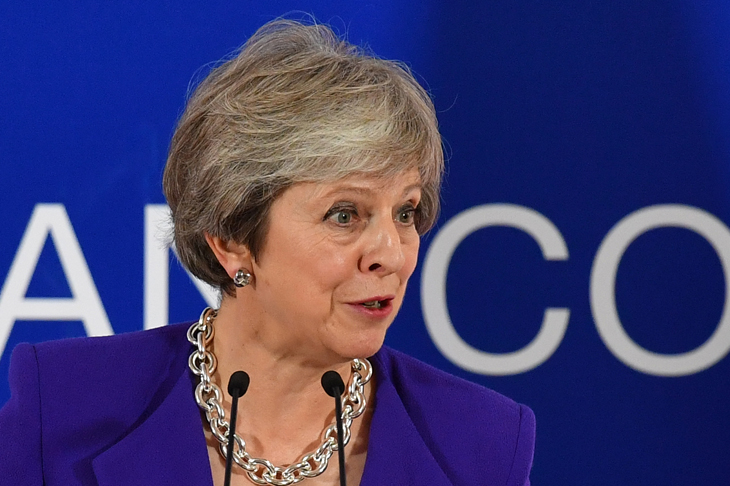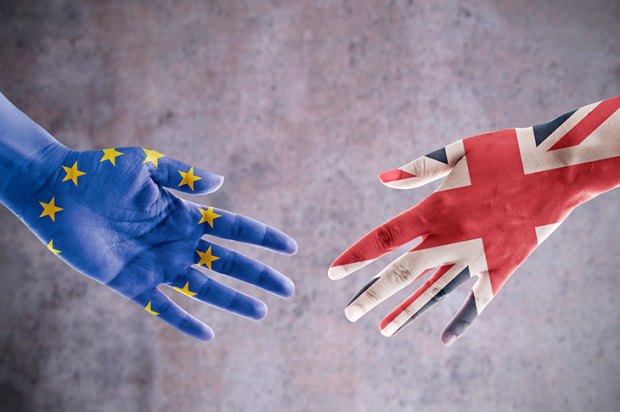The Brexit negotiations are becoming so complicated that even the cabinet admits that it doesn’t understand what is going on. The Prime Minister has been told by several of her colleagues that they won’t back any deal she agrees until they have seen written legal advice, setting out what it means. If a Brexit deal is going to be impenetrable even to secretaries of state who have followed every step of the negotiations, what hope does the public have?
This extraordinary state of affairs was summed up by the cabinet meeting this week during which ministers discussed where the negotiations stand. Theresa May would agree on the money to pay the EU, but not the full terms of Brexit: those negotiations would be ongoing. She would also commit to Northern Ireland staying aligned with EU rules on goods to avoid a hard border. The rest of the UK might agree to follow EU rules as well. This is to avoid triggering the backstop, which would see Northern Ireland put under a separate regime to the rest of the UK, if the UK diverged from the EU.
It’s not a particularly attractive plan, but it’s being sold to the cabinet on the grounds that the alternative — a ‘no deal’ Brexit — would be even worse. In the cabinet meeting, David Lidington, Theresa May’s de facto deputy, said that he was the only one of them who had been an MP on Black Wednesday and he could remember the turmoil. A no-deal Brexit would repeat this drama, he said, with all of the political consequences. Philip Hammond, the Chancellor, made the same case. But the rest of the cabinet is becoming less inclined to accept this — with ministers asserting themselves more and more.
I understand that Mrs May was trying to wrap up the meeting by 11.15 a.m., in order to go and meet the Dutch royal family. But her ministers refused to cut the conversation short (Brexit was, slightly absurdly, not the first item on the agenda) and the meeting ended up running on for an extra 35 minutes. Claire Perry, the energy minister, accused her colleagues of using the discussion over the backstop to position themselves for the leadership. Several of those present took this as a dig at Jeremy Hunt, the Foreign Secretary, who had argued forcefully that the UK must have a way of getting out of any deal signed. But Hunt wasn’t actually in the room when Perry made her comments — he had slipped out to put on his morning suit ahead of the meeting with the Dutch king and queen.
Geoffrey Cox, the Attorney General, made clear to cabinet this week that Mrs May is set to sign them up to a deal that would be hard, perhaps impossible, to get out of. He told ministers that the nettle they had to grasp was whether the UK would accept a backstop that it couldn’t get out of, go for no deal, or renounce the backstop.
This makes it harder for Michael Gove, who has until recently been arguing that Mrs May’s imperfect deal should be accepted, with a view to making Brexit better afterwards. As one Brexiteer who had previously advocated the ‘just get out’ strategy puts it to me, ‘It has to be possible to say: we’ll fix it later.’ It is harder to say that when the Attorney General is warning that later fixes might not be possible.
No. 10 has long been convinced that the public will define a successful Brexit by the two Ms: money and migration. If the UK stops sending large sums of money to the European Union every year and free movement clearly ends, voters will accept that the referendum result has been delivered, even if the UK continues to follow EU rules in various other areas.
Exacting Brexiteers argue that the reaction to Mrs May’s Chequers plan shows that voters want more than this. They point to the lack of public support for the plan as evidence that there’s a desire for a cleaner break with the EU. There may be some truth to this. But Chequers’ bigger problem was that the Brexit secretary and the man who had led the Leave campaign both quit over it. This left Leave voters inherently suspicious. This problem was compounded by the fact that there was almost no effort by No. 10 to sell the plan to the country at large, which meant it was defined by the criticisms of David Davis and Boris Johnson.
No. 10 needs to be careful, because the public’s views on Brexit can’t just be boiled down to money and migration. Over the years voters have often been told that politicians would love to help with a problem but can’t because of EU rules. If that continues after Brexit, there will be a backlash. The deal for fishing will probably decide the fate of more parliamentary seats than a deal for cars will — a point that is being made to No. 10 by the new Scottish Tory contingent and by Mr Gove, the adopted son of a fishing merchant whose business was devastated by the deal that Ted Heath struck to enter the European Economic Community.
This brings us back to the biggest Brexit question of all: whether there will be a deal or not. The sheer lack of preparation for no deal makes it a less likely option. But as Gove warned at cabinet this week, there is a danger that UK officials will strike a deal with the EU that the cabinet can’t support. Civil servants might agree a deal while failing to realise that it will be politically untenable. If parliament rejects the deal that Mrs May agrees, there may be no time (or inclination) to strike another one with Brussels.
For this reason, it is past time for politicians to take control of the negotiations. The stakes are too high to leave the matter to civil servants. Mrs May’s best hope is to send her Brexit Secretary to Brussels.
Got something to add? Join the discussion and comment below.
Get 10 issues for just $10
Subscribe to The Spectator Australia today for the next 10 magazine issues, plus full online access, for just $10.
You might disagree with half of it, but you’ll enjoy reading all of it. Try your first month for free, then just $2 a week for the remainder of your first year.














Comments
Don't miss out
Join the conversation with other Spectator Australia readers. Subscribe to leave a comment.
SUBSCRIBEAlready a subscriber? Log in